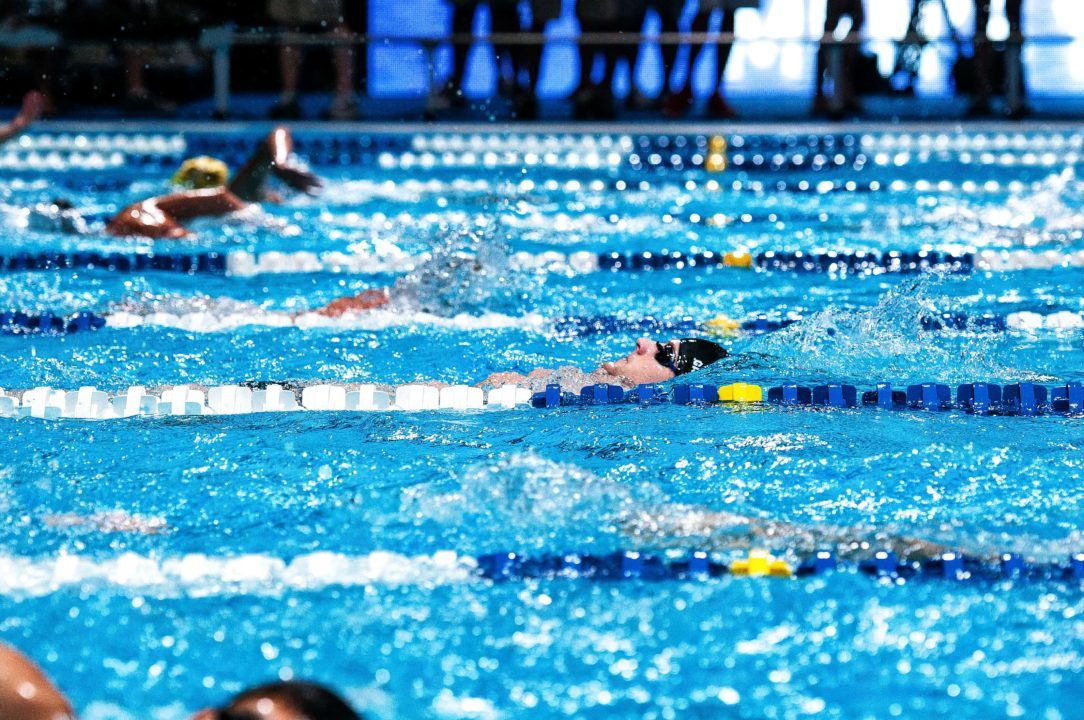Courtesy of Bill Natlo
Hey Coach! Did you know that you’re actually working in marketing?
While we often think of ourselves as teachers, therapists, psychologists, trainers, and more…when was the last time you considered yourself a marketer? It might sound strange at first, but think about it—every day on the pool deck, you’re selling something important. Whether you’re pushing your athletes to conquer a tough set, building your team culture, or helping a swimmer believe in their potential, you’re constantly connecting and motivating—just like a marketer does. This article isn’t about the ins and outs of marketing your team; rather, it’s about realizing that as a coach, you’re already a professional marketer in your own right, using essential marketing skills to inspire and develop your athletes.
With 20 years of experience coaching at all levels of swimming, and another 20 years in marketing for big brands like Pepsi, Mountain Dew, Budweiser and Taco Bell, I’ve always been fascinated at how closely intertwined coaching and marketing really are. Let’s explore how embracing these connections and intersecting aspects can enhance our approach on deck in ways we might not expect!
Audience Connection
Just as marketers dig into understanding their audience, effective coaches take the time to get to know each athlete as an individual. A good marketer wouldn’t send out a generic message to every customer, and a strong coach doesn’t rely on a one-size-fits-all approach with their swimmers.
Instead, we strive to understand what motivates each athlete. Some swimmers are driven by competition, while others find their spark in camaraderie or building their confidence. By recognizing these unique motivators, you can connect with your athletes in ways that truly resonate, encouraging them to push harder and strive for their goals. In both coaching and marketing, success comes down to building meaningful connections—those connections are what transform strategies into lasting impact.
Storytelling
Marketers are expert storytellers, crafting narratives that help people see themselves in a brand or cause and understand the value behind what’s being offered. Coaches do something similar but with a different focus. Instead of selling a product, we’re sharing a vision of success.
When you encourage your swimmers to visualize their races or imagine themselves achieving personal bests, you’re planting seeds of belief. You’re helping them create a mental picture of success that goes beyond simple motivation; it becomes a roadmap for their journey. Just like a powerful brand story can foster loyalty, effective visualization can boost an athlete’s confidence and performance. In both coaching and marketing, we harness the power of belief to spark meaningful change.
Data-Driven Optimization
In marketing, data is king. Marketers track engagement rates, conversion metrics, audience demographics, and countless other data points to refine their strategies. With every campaign, they adapt based on what the data tells them.
Coaches, too, rely on data—though our metrics look a little different. Swim times, stroke counts, heart rates, and video analysis all provide insights into an athlete’s performance. Just like a marketer fine-tunes an ad campaign, coaches adjust a swimmer’s training plan or technique in real-time based on available metrics. Whether it’s altering stroke tempo or changing breathing patterns, small adjustments grounded in data can yield significant results.
Both marketers and coaches need to be strategic yet flexible, ready to pivot when the numbers suggest it’s time. This commitment to data-driven optimization—whether in business or on the pool deck—helps us break through plateaus and get closer to peak performance.
Continuous Improvement Mindset
In both marketing and coaching, there’s no such thing as a “set it and forget it” strategy. Success hinges on a mindset of continuous improvement—a cycle of testing, analyzing, and refining. Marketers launch campaigns, gather feedback, analyze results, and then adjust their approach based on what they learn. Each insight provides an opportunity to strengthen future campaigns.
Coaches embrace this same cycle. Training programs aren’t static; they evolve based on each swimmer’s progress and feedback. You might tweak stroke technique, adjust training volume, or experiment with different tapering strategies—all in pursuit of that elusive edge. Just as marketing campaigns evolve through iteration, a swimmer’s journey is shaped by this loop of improvement. Every cycle builds on the last, driving measurable progress we can celebrate.
Goal Alignment & Motivation
At the core of both coaching and marketing is the ability to show individuals how their efforts matter. Marketers rally their audience around a shared vision—supporting a cause, embracing a lifestyle, or connecting with a brand identity. They help people feel part of something bigger.
Coaches do the same. Each swimmer has personal goals—breaking records, mastering new techniques, or simply getting through a tough workout. A great coach helps athletes see how their individual ambitions contribute to team success. Whether building team spirit or striving for championships, you inspire athletes by aligning their personal goals with the broader team objectives. In both roles, this alignment fuels commitment, pride, and the drive that leads to real success.
In the world of coaching, it’s easy to see ourselves solely as teachers or motivators. But, as we’ve explored, many of us are marketers in disguise. Just as marketers connect with their audience, craft compelling stories, analyze data, and inspire loyalty, we coaches do the same with our athletes. Recognizing this connection allows us to approach our work with renewed perspective and purpose.
Thinking of yourself as a marketer doesn’t change what you do on deck; it acknowledges the impact you already have. Every word of encouragement, every adjustment, every story you share can shape how your athletes see themselves and their potential. So, the next time you’re motivating your team, remember: you’re not just coaching swimmers; you’re inspiring belief, building a brand, and creating a vision that they can carry with them long after they leave the pool.
Bill Nato is a swimming coach and the Chief Marketing Officer of A3 Performance. A3 Performance is a SwimSwam partner, but this is not a sponsored post.

First, what up SKZ.
Roll up!